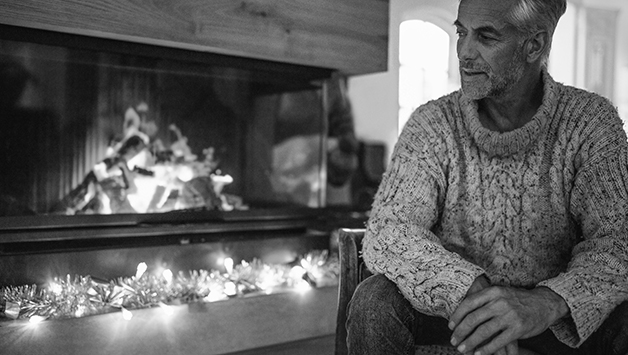
The holidays can be magical and filled with joy when you’re surrounded by family and friends. But this season can also magnify feelings of loneliness if you’re facing social isolation as a senior.
Unfortunately, senior isolation is very common — and harmful. About 27% of adults age 65 and older live alone, and 43% report feeling lonely on a regular basis. Social isolation can increase the risk of high blood pressure, malnutrition, and the inability to physically care for yourself. Seniors who are isolated are more likely to develop dementia and are more vulnerable to elder abuse.
These alarming stats highlight why it’s important to combat senior isolation and make an effort to connect with others, especially during the holidays.
Seniors are at a higher risk of being isolated during the holidays for a variety of reasons, such as:
The holidays also spark reminiscing, which can lead to comparisons between past years’ celebrations and now. But even though you might not be able to enjoy the traditions you once practiced, you can create new ones that add holiday cheer to your life today.
Thankfully, you can combat senior isolation. You just need ways to reduce loneliness by connecting with others. Here are a few ideas to get you started:
Reach out to your family, friends, neighbors, or community members with an invitation to spend time together this holiday season.
Tailor your activities to your stage of life. If you’re in an assisted living facility, invite your hall neighbors to your room for a holiday movie or gather everyone together in the common room for carols around the piano.
Put up a small tree. Hang a few lights or garland on the wall. Holiday decor adds cheer and encourages you to open your home to others.
There’s nothing quite like engaging with youth to get your brain going. Host a game night at your home and teach the grandkids a few of your favorites.
Don’t be shy about requesting transportation to the mall for people watching, a local restaurant for a holiday meal, or to your children’s homes for a gift-wrapping session. What matters is spending time together.
Do you love to bake, knit, or wrap gifts? Find a local organization and ask how you can join as a volunteer this holiday season.
Exercise is a wonderful way to ward off the holiday blues, especially in the company of others. Go for a daily group walk down the hall or through your neighborhood and chat along the way.
There’s something about sitting among an audience that can make you instantly feel part of something. Look for local performances of holiday classics.
Living with untreated hearing and vision problems can make it difficult to communicate and could lead you to avoid social situations. Hearing aids and glasses may be the only barriers between you and holiday festivities.
Sing carols and laugh at your grandkids’ antics. Don’t be afraid to be silly and let loose in the company of others. Be yourself. After all, that’s why everyone loves you.
Photo credit: iStock
Wellabe offers life and supplemental health insurance plans to help you prepare for good days and bad. We’ll always be here to empower you to be well — well prepared, well protected, and well loved.